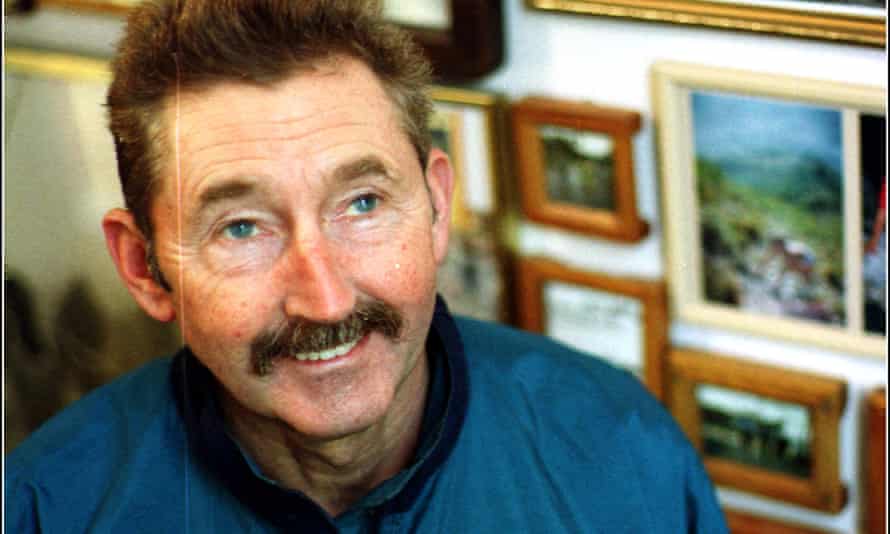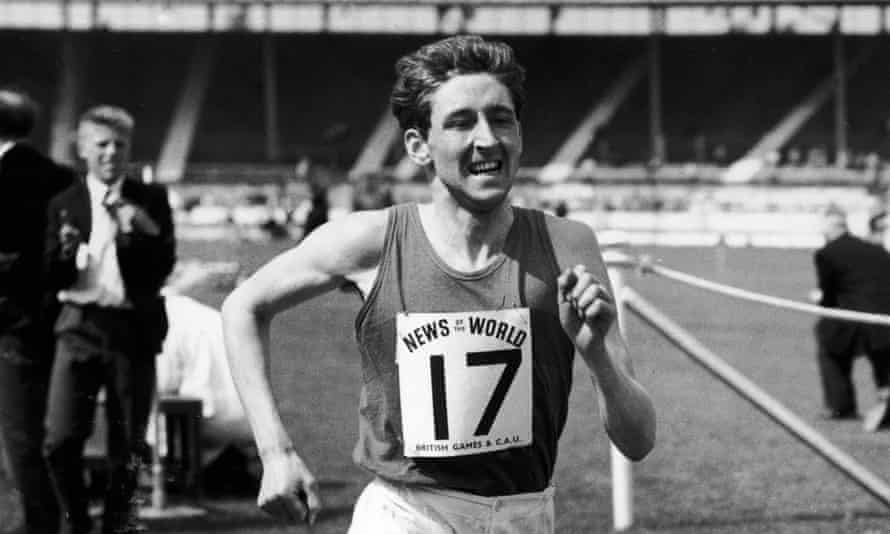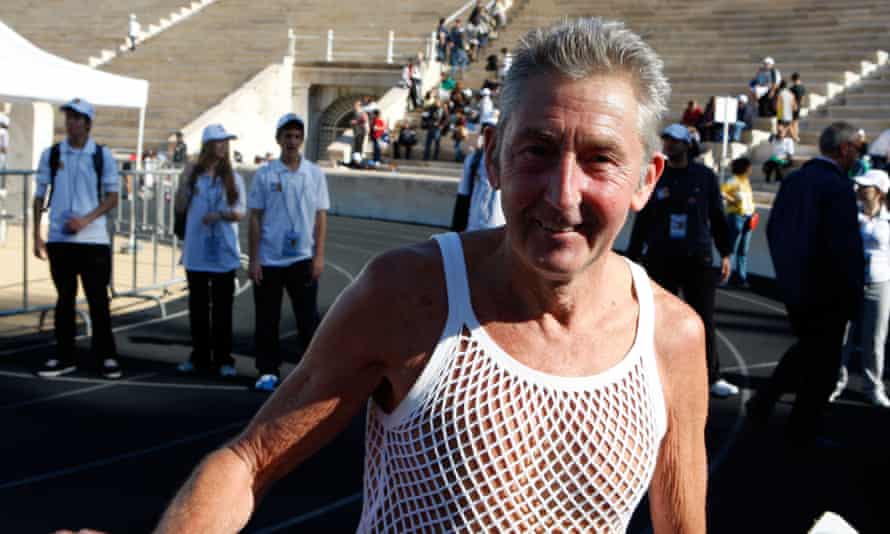Ron Hill, remembered for so many things, his several world bests in the marathon, consecutive days of running, a Phd. chemist, designer of running clothing, winner of Boston, European Championships, and Commonwealth Games marathons, Olympic disappointment, and general high spirited competitor who when being consoled after not winning the 1972 Olympic marathon when he was the pre-race favorite told his teammate to 'f--k off', has passed away on May 23, 2021. It had been reported several years ago that Ron's running streak which went over 50 years was terminated by cardiac problems, an ailment not unknown to a lot of very good runners as they approach their later years.
Below is a well done obituary by Neil Shuttleworth that appeared in The Guardian today.
| |||
I certainly didn't but, as usual, I was thinking right away about how maybe to
do that.
Maybe if the east wind were not so cold: I did tighten up and struggle to
maintain contact and the conditions were a factor.
Hill had the advantage of preparing in the cold and wet and windy north of
England."
Ron Hill obituary
British long distance runner who won gold medals and broke records in the marathon during the 1960s and 70s

Ron Hill, who has died aged 82, was an exceptional and versatile British long distance runner who won gold in the marathon at the 1969 European Championships and the 1970 Commonwealth Games. He broke four world records in various events and ran in 115 marathons. Even today his best marathon time, 2hr 9min 28sec, ranks as one of the quickest by any Briton.
Running in the amateur era, Hill combined his athletics career with a job as a textile scientist, and revealed considerable entrepreneurial skills when he set up a multimillion-pound own-label sportswear company called Ron Hill Sports, which continues to this day as Ronhill.
Born in Accrington, Lancashire, Hill was educated at the town’s grammar school and won a scholarship to Manchester University in 1957, where he ran for the university as well as the local Bolton United Harriers & Athletics club, having switched there from his boyhood club, Clayton-le-Moors.
He gained a degree in textile chemistry in 1960 and began to make serious waves in British athletics while staying on at university to do a PhD. By 1962 he was running cross-country for England and representing Great Britain at the marathon in the 1962 European Championships in Belgrade, although he was one of seven athletes there who were unable to finish the event.

In 1963 he won the six-mile run at the British Amateur Athletic Association championships in a time of 27:49.8, equalling the UK record, and in 1964, the year he completed his PhD, he appeared at the Olympic Games in Tokyo, finishing 18th in the 10,000 metres and 19th in the marathon. To run both events in the same games was an astonishing feat.
In 1965, on his home Bolton United Harriers track, Hill broke two world records that had belonged to the great Czech runner Emil Zatopek: at 15 miles and 25,000m. He then became the English national cross-country champion in 1966 and 1968, and won the AAA 10 mile event four times between 1965 and 1969, twice beating the world record at that distance in 1968. He came seventh in the 10,000m at the 1968 Olympics in Mexico.
It was over the marathon distance, though, that Hill really made his name. His gold medal at the European Championships came in 1969 in Greece, where he came through the field from Marathon to Athens in dramatic fashion, finishing just over 30 seconds ahead of Gaston Roelants of Belgium. The following year he took gold in the Commonwealth Games in Edinburgh, becoming only the second man to break the 2hr 10min barrier with his world record time of 2:09:28.
In 1970 he also went on to become the first Briton to win the Boston Marathon, in the then record time of 2:10:30, and in 1971 he won bronze in the European Championships at Helsinki, later being appointed MBE in recognition of his various achievements.
There was disappointment, however, in the marathon at the 1972 Munich Olympics, where Hill was favourite to win but finished sixth behind the winner, Frank Shorter of the US. In retrospect he said he made two mistakes: training at altitude and over-pursuing the then-fashionable glycogen-loading diet.

Those games proved to be Hill’s last, but he continued to run in marathons all over the world, reaching the 115 landmark with his final one in Boston in 1996. Having rejoined the Clayton-le-Moors club in 1976, he held the British best time for the marathon for the 40-plus age group (2:15:46), and raced in more than 100 countries before the age of 70, becoming one of the most travelled athletes in the world.
He also laid claim to the world’s longest streak of daily running, having run at least a mile a day, every day, even when ill or injured, from 20 December 1964 to 30 January 2017 – a total of 52 years and 39 days. He reckoned to have competed in more than 2,260 races across his lifetime.
In 1964 Hill had become a research chemist at the Courtaulds dyeing research laboratory at Droylsden in Greater Manchester, and then in 1975 had moved into self-employment. His entrepreneurial activities began in earnest in 1970, when he founded Ron Hill Sports to develop the clothing ideas he had come up with both while running and while working as a textile scientist. Among his best known innovations were side-split shorts and mesh running vests, both designed to allow cooling air to flow around the body.
He owned the business until 1991, when he sold it, afterwards continuing as a performance textile consultant.
He is survived by his wife, May, and two sons, Steven and Graham.





No comments:
Post a Comment